Archer reacts to Kavanaugh confirmation: ‘Disappointed’ by decision
Photo credit: USA. gov
Brett Kavanaugh and his family talk to President Donald Trump at the White House. Trump nominated Kavanaugh as a Supreme Court Justice on July 9.
A year after #MeToo movement flooded Twitter screens, America watched as Christine Blasey Ford accused Supreme Court nominee Brett Kavanaugh of sexually assaulting her as a teenager.
In July of 2018, President Donald Trump nominated Kavanaugh for the Supreme Court seat. Following Trump’s endorsement, Christine Blasey Ford wrote a letter to California Senator Dianne Feinstein about the alleged assault.
“They both laughed as Kavanaugh tried to disrobe me in their highly inebriated state,” Ford wrote in her letter. “With Kavanaugh’s hand over my mouth, I feared he may inadvertently kill me.”
On Sept. 27, Ford and Kavanaugh testified before the Senate Judiciary Committee.
“I am here today not because I want to be,” Ford said during her testimony to the Senate. “I am here because I believe it is my civic duty to tell you what happened to me while Brett Kavanaugh and I were in high school.”
A week later, Kavanaugh was confirmed by the Senate. The decision came from a split chamber in which senators voted 50-48 to secure Kavanaugh’s lifelong seat as a Supreme Court Justice.
According to an online survey sent to the entire upper school with 91 respondents, 98.9 percent of students said they disagreed with Kavanaugh’s confirmation.
“I think that it is hard to wrap my head around that one of the nine people in the country who decides what is just and unjust [could be] a blatant sexual offender,” senior Ruby Ehrlich said. “Our children are going to have to grow up when he is still in power.”
Eleventh Grade Dean Jennifer Dohr connected the trial to Anita Hill’s testimony in 1991 against Supreme Court nominee Clarence Thomas.
“[I felt] rage — I wish I could say shock — but I see we have come such a little ways since Anita Hill 20-some years ago,” Dohr said. “Women so often have nothing to gain and everything to lose by coming forward.”
After Ford came forward about the allegations against Kavanaugh, Trump took Twitter, questioning why she didn’t report the allegations immediately after the incident occurred.
“I have no doubt that, if the attack on Dr. Ford was as bad as she says, charges would have been immediately filed with local law enforcement authorities by either her or her loving parents,” Trump tweeted on Sept. 21. “I ask that she bring those filings forward so that we can learn [the] date, time, and place!”
This Tweet sparked a variety of responses, with a hashtag created #WhyIDidntReport for victims to share their own stories of sexual assault.
The hashtag was not the only way social media was used during the confirmation process. Archer junior Emily DeLossa said she used Snapchat to discuss the hearing with a friend that has differing political beliefs in what she called a “very frustrating conversation.”
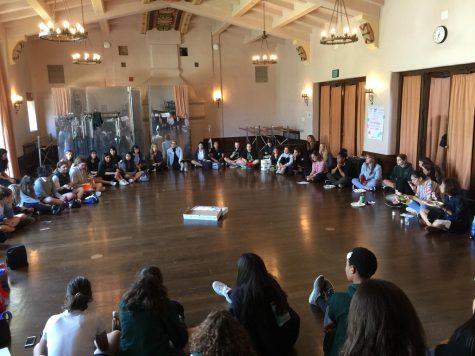
Archer girls discuss their feelings during a council about Brett Kavanaugh. The rules of the council included speaking from the I perspective, respecting confidentiality, embracing messiness and kindness, practicing accountability and being aware of equity of voice.
“This person kept trying to say he was innocent, and I believe with all my heart that he isn’t, and I think we should believe her even if there is not a lot of corroborating evidence — which is the point he was trying to make — [because] I think it is important to believe a female story,” DeLossa said. “In the end [the conversation] didn’t end up being the way I wanted it to be, [but] I know we can’t convince everyone our political viewpoints [are correct.]”
According to Pew Research Center, Republicans and Democrats are more divided ideologically than America has seen in the last two decades. The study found that citizens with liberal views were more likely to block a friend on social media because of differing politics. Conversely, 66 percent of consistent conservatives said their close friends share their views on politics and government.
Kavanaugh’s hearing has reached more than just women. Loyola High School sophomore Nolan Rice said if sexual misconduct allegations are credible, accused men should not be able to serve as judges.
“If he truly did commit a sexual [violation], then no, I don’t think he should be able to be a lifetime judge in any shape or form,” Rice said. “I believe her story [because] it sounds credible…you can’t really expect her to remember everything.”
According to another digital survey of 132 upper school students, 76.4 percent of students said their experience at an all-girls school shaped how they see the trial, while 23.6 percent of students said their educational environment did not have an impact.
Dohr commented upon how her students have been affected by the confirmation process within the school environment.
“I often drive home filled with deep sadness for the young women I teach,” Dohr said. “I see the looks in their eyes…in terms of how personally they are impacted by injustice, particularly instances [against] women.”

Ella Frey joined the Oracle writing staff in 2016 and was promoted to sports editor junior year. She currently serves as the news and features editor....

Anna Brodsky joined the Oracle staff in 2016. She took a hiatus for the 2017-2018 school year to fulfill her art credit by serving as copy editor for the...



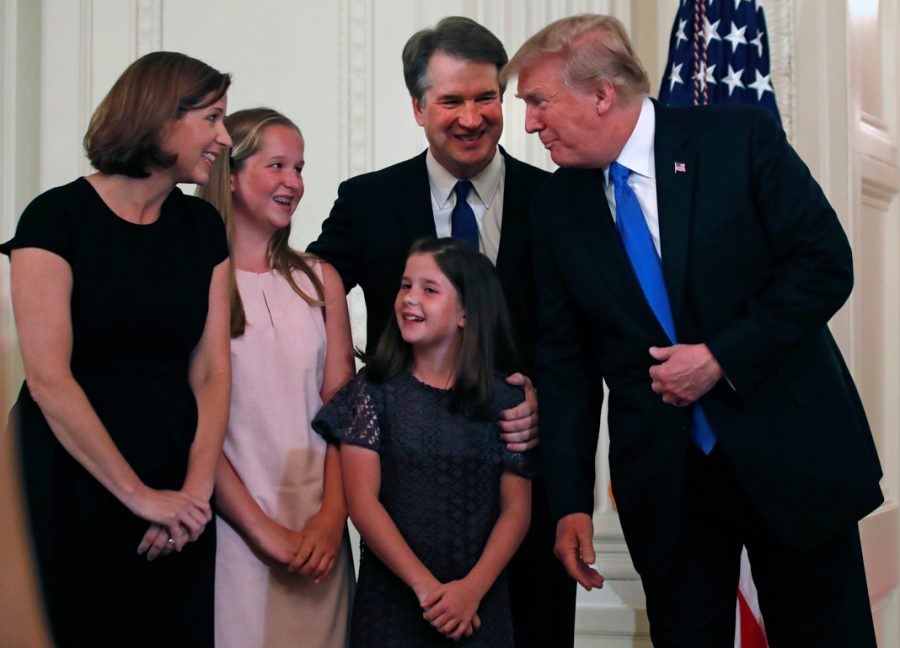
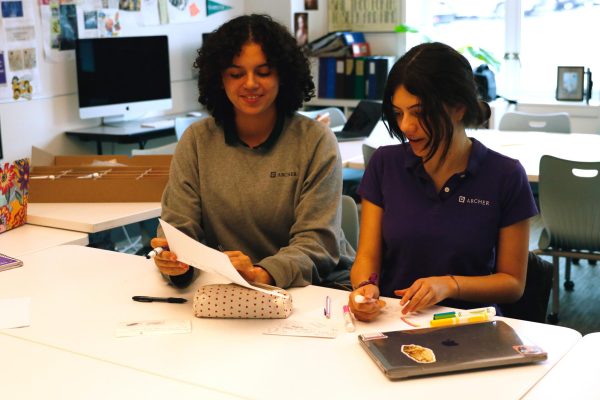




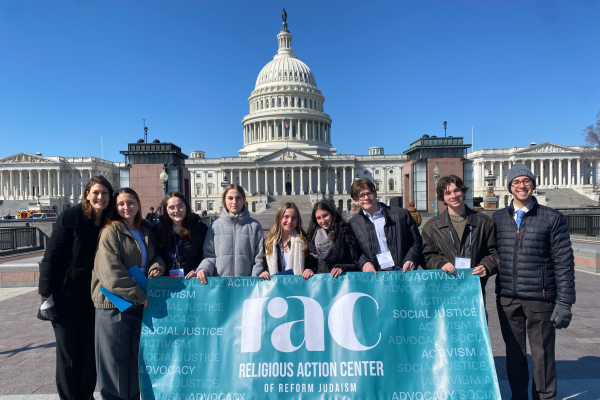

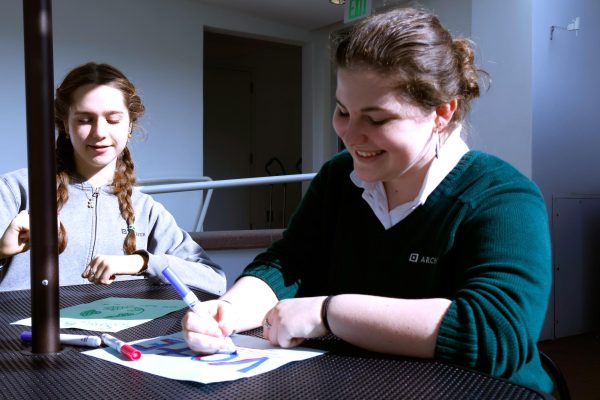
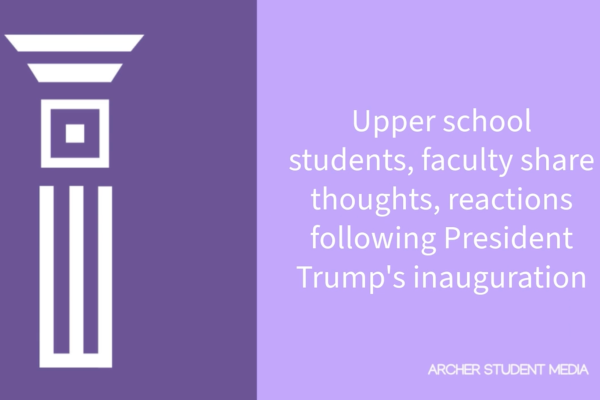
Nina Sperling • Nov 27, 2018 at 10:57 am
This was so interesting!